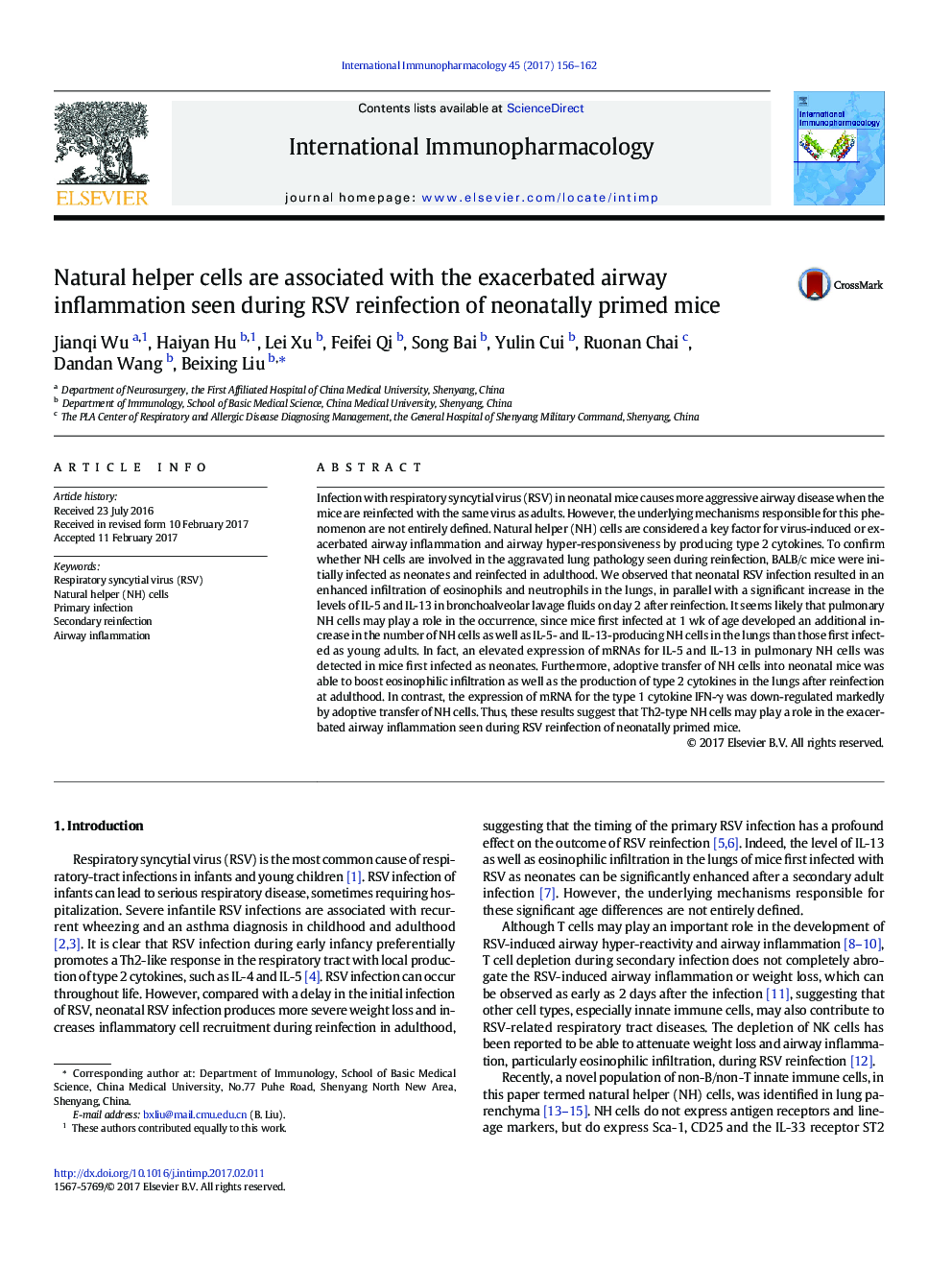| کد مقاله | کد نشریه | سال انتشار | مقاله انگلیسی | نسخه تمام متن |
|---|---|---|---|---|
| 5555606 | 1559745 | 2017 | 7 صفحه PDF | دانلود رایگان |

- Neonatal RSV infection enhances lung inflammation following reinfection in adulthood.
- NH cells produce more type 2 cytokines after reinfection of neonatally infected mice.
- NH cells might be a mediator for the severe lung pathology seen during reinfection.
Infection with respiratory syncytial virus (RSV) in neonatal mice causes more aggressive airway disease when the mice are reinfected with the same virus as adults. However, the underlying mechanisms responsible for this phenomenon are not entirely defined. Natural helper (NH) cells are considered a key factor for virus-induced or exacerbated airway inflammation and airway hyper-responsiveness by producing type 2 cytokines. To confirm whether NH cells are involved in the aggravated lung pathology seen during reinfection, BALB/c mice were initially infected as neonates and reinfected in adulthood. We observed that neonatal RSV infection resulted in an enhanced infiltration of eosinophils and neutrophils in the lungs, in parallel with a significant increase in the levels of IL-5 and IL-13 in bronchoalveolar lavage fluids on day 2 after reinfection. It seems likely that pulmonary NH cells may play a role in the occurrence, since mice first infected at 1 wk of age developed an additional increase in the number of NH cells as well as IL-5- and IL-13-producing NH cells in the lungs than those first infected as young adults. In fact, an elevated expression of mRNAs for IL-5 and IL-13 in pulmonary NH cells was detected in mice first infected as neonates. Furthermore, adoptive transfer of NH cells into neonatal mice was able to boost eosinophilic infiltration as well as the production of type 2 cytokines in the lungs after reinfection at adulthood. In contrast, the expression of mRNA for the type 1 cytokine IFN-γ was down-regulated markedly by adoptive transfer of NH cells. Thus, these results suggest that Th2-type NH cells may play a role in the exacerbated airway inflammation seen during RSV reinfection of neonatally primed mice.
Journal: International Immunopharmacology - Volume 45, April 2017, Pages 156-162